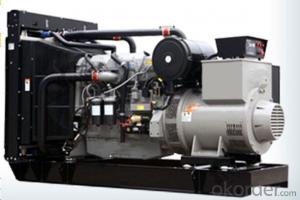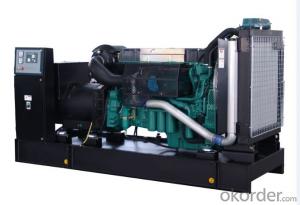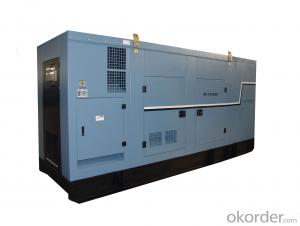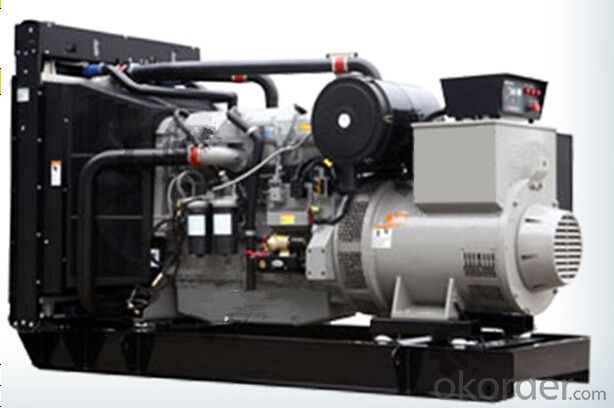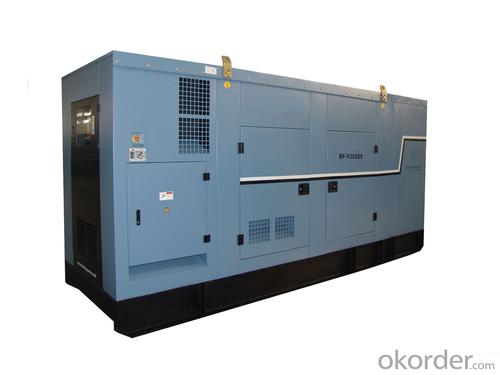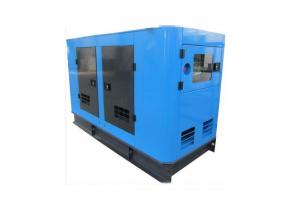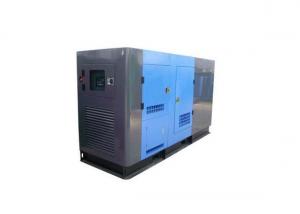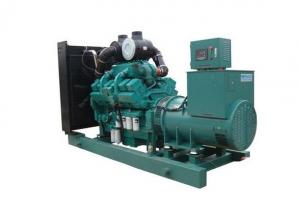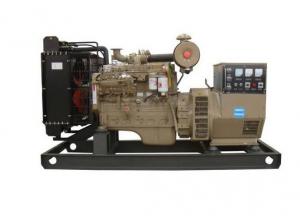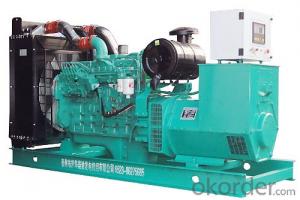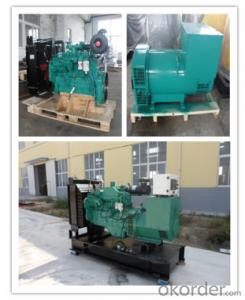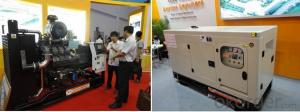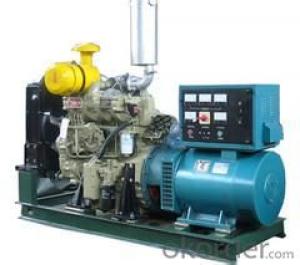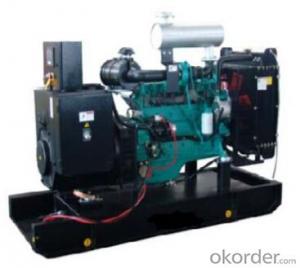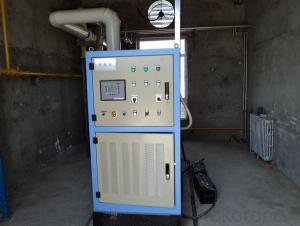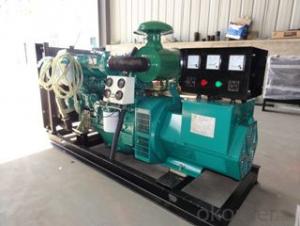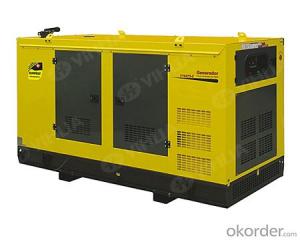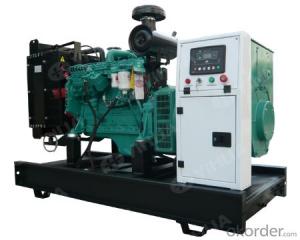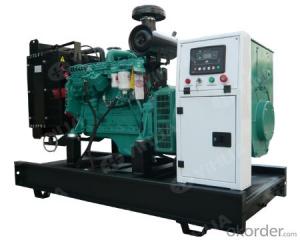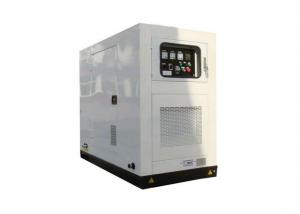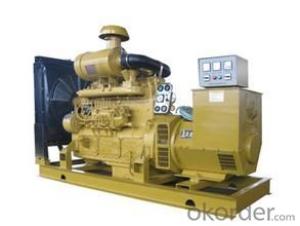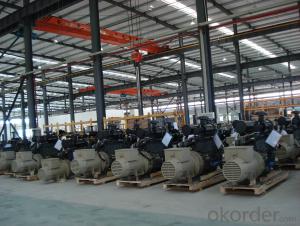Diesel Generator Yuchai 100kw/130kva
- Loading Port:
- Shanghai
- Payment Terms:
- TT OR LC
- Min Order Qty:
- 1 unit
- Supply Capability:
- 100 unit/month
OKorder Service Pledge
OKorder Financial Service
You Might Also Like
Product Description
A diesel generator is the combination of a diesel engine with an electric generator (often an alternator) to generate electrical energy. This is a specific case of engine-generator. A diesel compression-ignition engine often is designed to run on fuel oil, but some types are adapted for other liquid fuels or natural gas.
Diesel generating sets are used in places without connection to a power grid, or as emergency power-supply if the grid fails, as well as for more complex applications such as peak-lopping, grid support and export to the power grid.
Main Product Features:
Engine (Yuchai Model: YC6MK420L-D20)
Radiator 40`C max, fans are driven by belt, with safety guard
24V charge alternator
Alternator: (Marathon Model: MP-104-4), single bearing alternator IP21, insulation class H/H
Absorber
Dry type air filter, fuel filter, oil filter
Main line circuit breaker
Standard control panel
Oil drain pump
One12V batteries, rack and cable
Ripple flex exhaust pipe, exhaust siphon, flange, muffler
User manual
Product Specifications:
| YUCHAI (ITEM NO) | WET-Y350 | ||
| group | power stand by(kw/kva) | 300/375 | |
| power prime(kw/kva) | 260/325 | ||
| output voltage(V) | 400/231 | ||
| stand by amp(A) | 540 | ||
| prime amp(A) | 468 | ||
| dimension without canopy L*W*H(mm) | 3000*1100*1800 | ||
| weight without canopy(kg) | 2700 | ||
FAQ:
Q1: What is Prime Power and Standby Power Rating?
A1: Prime Power (PRP): Prime power is available for an unlimited number of annual hours in variable load application, in accordance with GB/T2820-97(eqv ISO8528); A 10% overload capability is available for a period of 1 hour within a 12-hour period of operation. Standby Power Rating (ESP): The standby power rating is applicable for supplying emergency power for the duration of a utility power interruption. No overload, utility parallel or negotiated outage operation capability is available at this rating
Q2: How do we guarantee the quality of our products?
A2: We have established an advanced quality management system which conducts strict quality tests at every step, from raw materials to the final product.
Q3: How soon can we receive the product after purchase?
A3: Within three days of placing an order, we will begin production. The specific shipping date is dependent upon international and government factors, but is typically 30 to 40 workdays.
Q4: What is your after sales service?
A4: CNBM provides a full line of brand new and high quality products. Each and every unit is strictly factory tested. Warranty is according to our standard conditions: a, 15 months, counted on the day CNBM sold to the first buyer; b, One year after installation; c, 1000 running hours (accumulated); subject to the earlier one. Service and parts are available from CNBM or distributors in your location.
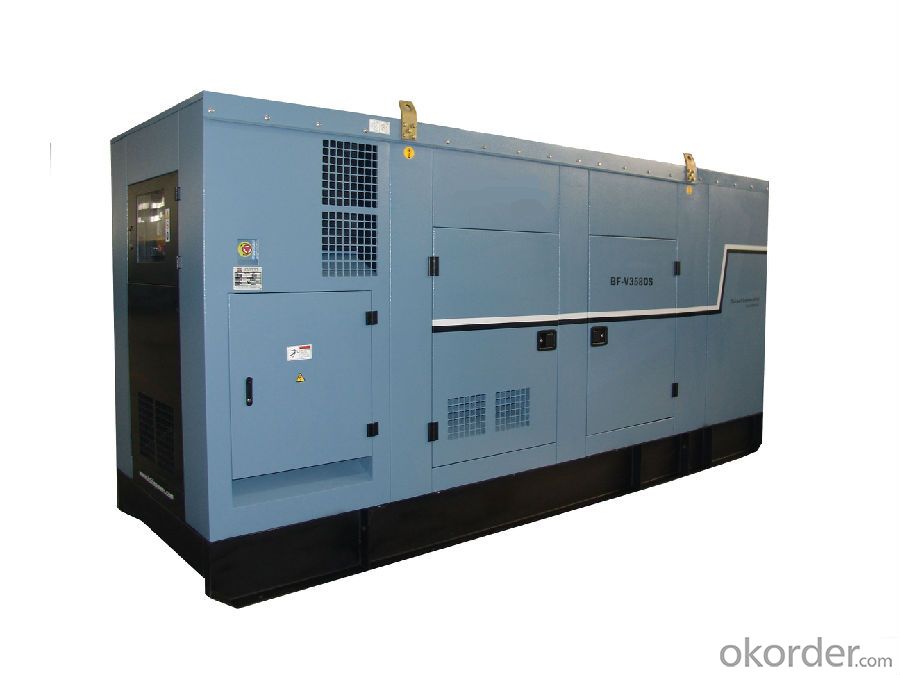
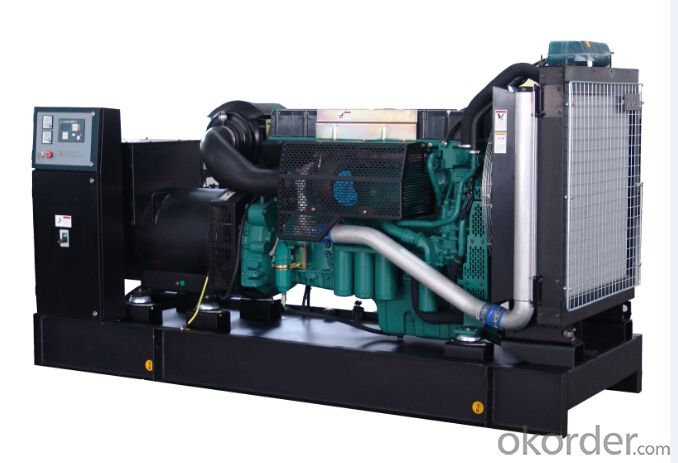
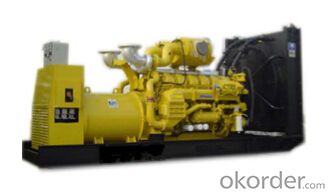
- Q: Im building a new house, and I would like to go totally off the grid in South-Central Oklahoma.Id like to be able to run the tv, freezer, refrigerator, and minimal lights and water well.Im looking for information on a complete system.Any ideas/? Im looking for the pros and cons of this way of life from homeowners that have actually done this.
- We are off grid in ky. Look into extremely efficient appliances, led bulbs, passive solar as well as solar hot water and active solar storage. You ALWAYS need more batteries than you have. Increase insulation to decrease heat/cooling losses. Install a cistern with a large rainwater catchment. 2500 gallons is not too much. Purchase property that has a woodlot and year round spring. Best to buy the whole watershed to ensure clean water.
- Q: I need to run a fridge on a small power generator that don't have enough staring power to run it , would adding a huge industrial capacitor make it possible ?
- The old style, pre- electronic wash machines used that same principle. They had a relatively small motor and used one or two huge capacitor's to get the motor going. Those capacitor's save up the maximum amplitude on the voltage sine wave (120V) and bleed out the power when the amplitude reverses each 1/60 th of a second. You might luck out, but I'm not sure if the AC compressor motor is an induction motor like the wash machine motors are so check out how to wire the capacitor in the circuit first and if it works with a compressor motor. It should, come to think of it, a lot of compressor's have capacitor starts s I can't see why a refrigerator compressor would be much different. You did say the running wattage of the generator is enough to keep the fridge going.right?
- Q: Diesel generator sets which good?
- if you want to buy a set of unit, it must choose their OEM manufacturers, with their authorization, agree with the above brand t
- Q: For 100Kw generator, what will be minimum/ maximum loadfor its safe operation.
- The maximum load will be given by the exhaust temperature, regardless of the nameplate rating. There is a maximum steady state temperature, which can be exceeded for short periods, say, 10 to 20 %, given by the engine mfr. The minimum load for an engine which runs at constant speed, i.e., a power generator, is about 50%. Below that it starts to shake dangerously. . .
- Q: I live in a location without municipal water supply. I could buy a natural gas generator, and hire an electrician to connect it to my breaker box, but I believe there is a way to connect solar panels to a battery system to provide enough power for my 220 volts submerged pump. I have 2 horses, 24 chickens, 2 dogs, 4 cats, 3 parakeets, and 3 people that need water in the event of a hurricane, national power grid attack,etc. There are solar powered generators advertised, but they are not powerful enough for 220. Also, my whole neighborhood of over 200 homes all lives off their own water wells, and we all suffered during hurricane Ike: 10 days without a water supply.
- i know you are interested in producing solar energy. I'm going to be your solar mentor and show you step-by-step how to make a solar panel. I'll also teach you my other secrets to renewable energy in an easy to follow format. Did you know? A basic solar installation from a retailer can take 30 years to pay back and cost you well over $20,000?
- Q: I Live way out in the country and have a diesel generator.I want to switch to nuclear because it could be cheaper. I have plenty of land to dispose of any nuclear waste.
- I really appreciate your sense of humour, and all of the answers are worth reading Keep the Faith John
- Q: I can visually see the electronic speed actuator moving in and out when this is happening. Should I replace the actuator or could it be something else. This is in a boat.
- There are several models of the 20K Westerbeke. Can you post up which model you have? It could be as simple as an adjustment. The actuators do not generally fail. However, if you have a lot of hours, say 2000, then the actuator spring may be worn out. Please post up your model and I will see what I can do. Also you can email me.
- Q: I am not recommending it, I am interested in the logistics.
- Oil is sometimes used to generate electrical power. Diesel generators are quite common, but they are also getting very expensive to operate. The process has been used for decades. There has to be something else we can use to power our civilization as the oil will not last forevermaybe for the next 50 to 75 years at best. Solar and wind power have come along way, but we still have a long way to go.
- Q: Hello, I am putting an HHO generator, which is metal plates in water in pvc pipe, into my small pickup truck. I am having a bit of trouble finding an EFIE unit though, which is the boy that goes in line in front of the 02 sensor, to give it a bit more juice and stop it from dumping more gas in when it thinks there is not enough air (but way too much HHO) in the system.Are there any automotive forums that you all would direct me to? And if not, are there any manufacturers of finished EFIE units, or even kits to build them, on the internet or elsewhere for me to utilize?I want to get this done before I leave for college. Gas prices suck!
- I haven't got a clue as to what a HHO thingy is. Is it an american gadget? I'm assuming you are in the States. You mention the price of gas, and EPA. Quite frankly i don't care if your doohicky works or not. At least you are not paying $10 per gallon. We, on this side of the pond, are currently paying around ?5.30 fpr a gallon of diesel and around ?5.00 for petrol. Does it just work with petrol engines or diesel as well?
- Q: I been thinking, and it seems to me our future vehicles would be best suited with a small 1~ liter diesel engine turning a generator to power 4 electric motors at the wheels of the car/truck, just like locomotives use. Advantages would be significantly increased fuel economy, AWD, no transmission and axle weight(offset by weight of batteries, longer lasting diesel engine, easier and cheaper to repair due to small engine size, fewer moving parts, and decreased complexity, regenerative braking, significantly reduced emmissions, less noise, no idling when not moving.Seems the advantages would vastly outweigh the disadvantagesDoes anyone build such a vehicle?
- Diesel would be a better alternative both in that high compression engines are more efficient though they also produce more nitrous oxides and diesels can run on biofuels more readily. However you have the problem that you would need a sophisticated computer controlled diesel to avoid the valve clatter while idle that turns a lot of people off. With a full hybrid, the clatter may be minimized but if you wanted the advanced engines, you would have to buy them from Mercedes or Volkswagon. Usually for kit cars, an industrial diesel motors are used ( these are motors designed to run cement mixers, tractors and other equipment ), but the result is a lot of clatter from the valves. Hub motors are in wide use, especially with hybrid buses but they have the down side of being unsprung weight so they severely hamper handling. Trying to do it without hub motors and you might as well go back to the central engine concept. Also the hub motors exist in bus sizes at the moment. Most regenerative braking options are electrical and can only recover a small portion of the power. The Urba-Electric of the 70's used a stepper motor controlled mechanical CVT between the motor and the wheel thereby having mechanical regenerative braking that had higher returns, unfortunately the commercial Electromatic transmission is no longer on the market and such industrial CVT's are limited in their power ratings as they usually used a rubber belt. Hybrids are interesting but they are inherently redundant. They're hardly the ecological salvation for the planet.
Send your message to us
Diesel Generator Yuchai 100kw/130kva
- Loading Port:
- Shanghai
- Payment Terms:
- TT OR LC
- Min Order Qty:
- 1 unit
- Supply Capability:
- 100 unit/month
OKorder Service Pledge
OKorder Financial Service
Similar products
Hot products
Hot Searches
Related keywords
